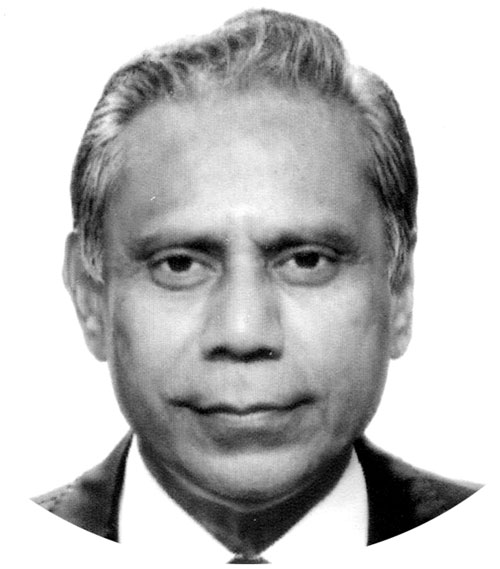Pakistani blind student wins Rhodes scholarship
A Pakistani blind student has created history by winning the Pakistan’s Rhodes scholar-elect for 2021.
Currently studying at Georgetown University’s campus in Qatar (GU-Q), Khansa Maria will head to Oxford University next fall to pursue a master’s degree in evidence-based policy intervention and social evaluation.
Visually impaired, Khansa had to face many struggles while studying in Pakistan hence, she is determined to do something for the physically challenged.
Khansa Maria feels that she has a certain responsibility toward her community to improve things to the extent that she can, or at least lend her skills or her experience in a way that benefits people like her in Pakistan.
Georgetown’s Qatar campus follows standards set by the “American with Disabilities Act”, which according to Maria, accommodates the disabled better than her hometown of Lahore.
She opines that still, most spaces are not always as physically accessible as they need to be to those with disabilities, and conversations and language about the disabled should be more inclusive.
The discipline she was pursuing at the GU-Q is a bachelor’s degree in Foreign Service, with a concentration in culture and politics. Her belief was that Foreign Service or working in someplace like the U.N.
would be her goal so she joined GU-Q to focus on her advocacy skills and ability to negotiate diplomatically, which she believes, will empower her to learn about the historical implications and the economic implication of conflicts.
Her visual impairment did not hold Maria back as she has been a campus leader and participant in a multitude of organizations, including the debating union, the South Asian Society and the Hoya Leadership Pathway.
She has also worked at the U.S. Embassy in Qatar, which exposed her to the nuances of diplomacy, where she also received good advice and mentorship.
Being cognizant of her handicap, Maria says that she has experienced firsthand the impacts of not having an inclusive society and now she wants to give back.
Maria advocates for the disabled and educates about inclusion – whether within a friend group or a business thinking of designing its space for people with disabilities.
She said she believes people should be better informed. She has also researched diaspora migration and how it is represented in literature.
She is writing her honors thesis on the evolution of the disability rights movement in the South Asian context.
The onset of the global pandemic COVID-19 impeded some of her pursuits. She had to cancel a number of research trips.
Maria became interested in the Rhodes scholarship program after she was informed of it by a blind scholar from India, and they became friends. She was apprehensive at first about applying but followed through.
Her selection came as a surprise but she is looking forward to joining Oxford University, where she hopes to learn during her stay there.
Reminiscing about her experience at the GU-Q, she expresses satisfaction that she was an active member of the student community there, participating in everyday conversations and the random debates.
In her sophomore year she was a recipient of a Qatar National Research Fund (QNRF) Grant which enabled her to investigate the barriers impacting the inclusion of people with disabilities in the Qatari workforce.
The Georgetown student founded “Hope for Tomorrow” in 2016 to combat stigmas surrounding disability and equip disabled individuals with practical skills to carve out a better future for themselves.
Along with educational social media campaigns, Hope for Tomorrow has offered courses on professional development. “I call myself a disability rights activist, but I know that this is not enough.
It takes all of us working together to make the changes that we want to see,” says the Rhodes Scholar. “I hope this next step brings me closer to working towards making that change.
My Georgetown journey taught me that fighting for my rights and against internalized structural ableism never gets easier and yet it is up to us to fight against all odds.”
Ian Almond, professor of world literature at Georgetown Qatar, served as Maria’s honors thesis faculty mentor.
He comments: “Despite her young age, Khansa already has an enviable and seldom-seen grasp of many basic theoretical paradigms – post-feminism, deconstruction, trauma theory, new historicism, etc. – and seems at home in discussing their many complexities,” Almond says.
“She has an incredible hunger for anything new — and it is heartening to see this in a student.”
Georgetown Qatar Dean Ahmad Dallal, commenting on the GU-Q website, says that Maria exemplifies the best parts of Georgetown.
He observes: “For an undergraduate applying to graduate school, there are a few distinctions that can surpass a Rhodes scholarship in prestige.
We are immensely proud of our student Khansa for this outstanding achievement, and we look forward to following her academic journey beyond Georgetown as she builds on the important policy research that began right here at Qatar Foundation.
Khansa personifies the values of a Georgetown education – critical thinking and responsible and ethical action.”
With her enthusiasm and zeal for learning, Maria has a bright future ahead of her because she wants to chart a path to making policies for inclusive development and capacity building for people with disabilities.
She aims to return to Pakistan and assist in drafting legislation guaranteeing equal educational opportunities to people with disabilities so they may acquire the skills necessary to become part of the workforce with legal protection.
—The writer is retired PAF Group Captain and a TV talk show host.










